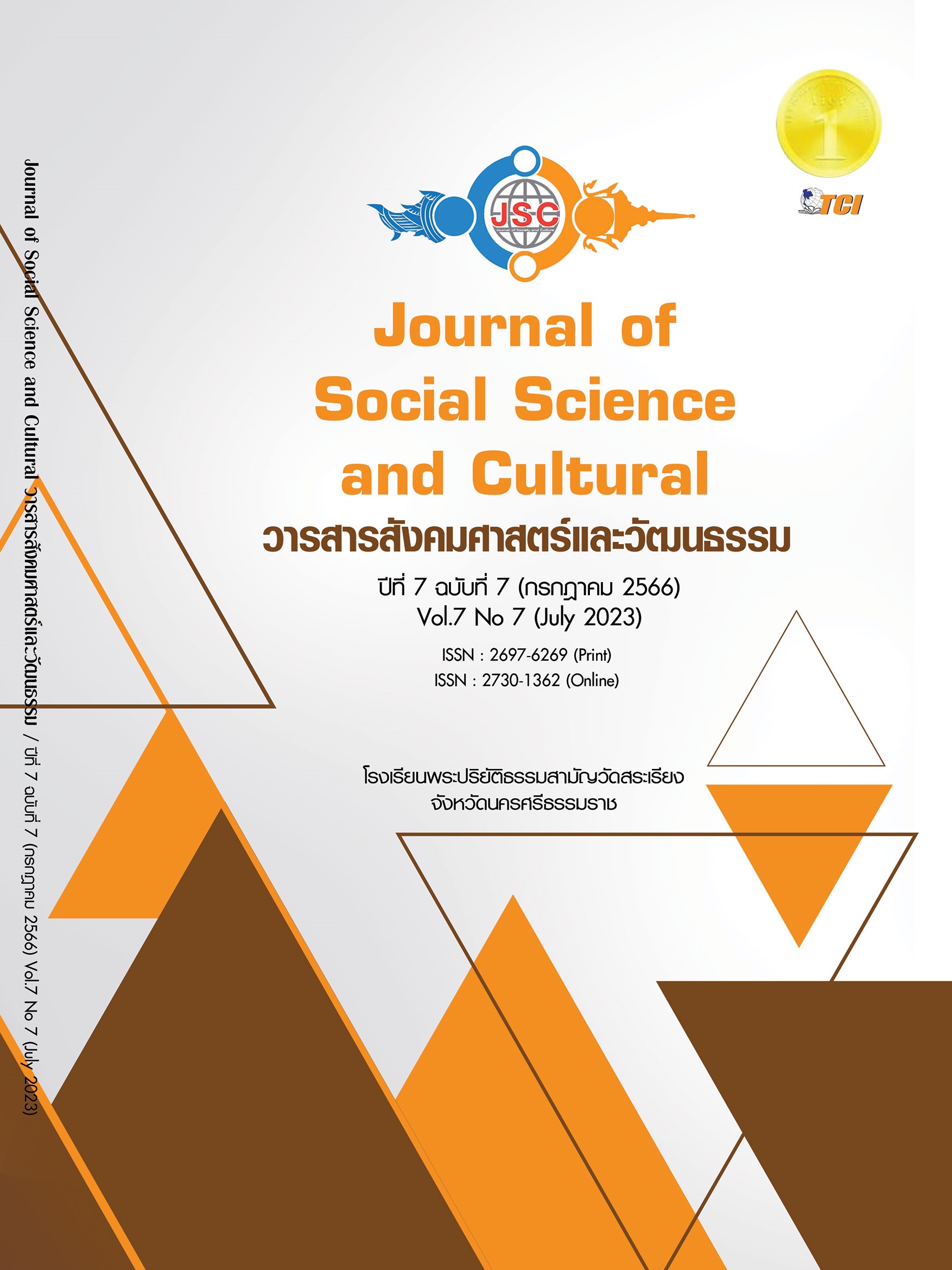ASSESSING THE QUALITY OF PATTAYA INTEGRATED SUSTAINABLE TOURISM MANAGEMENT STRATEGIC PLAN
Main Article Content
Abstract
The objective of this research article is as follows 1) to study the evaluation of the quality of strategic plans related to sustainable integrated tourism management of Pattaya City. 2) to propose an integrated sustainable tourism management approach in Pattaya , using qualitative research methods. The key informant group consisted of representatives of executives/experts with experience in tourism management, 17 people, selected by a specific purpose. The tools used for data collection were semi-structured interview forms. The data were collected through in-depth interviews and group interviews. The opinion data were analyzed into 3 groups: central, regional and local interviewees. and separated according to the issues interviewed by means of content analysis. The research results were found that 1) The research results have found that 1) The quality of Pattaya's tourism management strategy, from a regional planning perspective, is implemented in accordance with the aligned strategies across all sectors, including the Pattaya City Development Plan, Tourism Master Plan, and the investment expansion plan within the Eastern Economic Corridor (EEC). This is achieved through the promotion of community tourism, cultural tourism, and nature tourism. In terms of Pattaya's urban planning, both the public and private sectors have actively participated in the integrated strategic planning of Pattaya's tourism management. 2) To achieve sustainable and integrated tourism management in Pattaya, it is crucial for the city to adapt to various changes. This entails focusing on aspects such as benefits, feasibility, suitability, accuracy, coordination, and sustainability. The government, private sector, and local community should all play a role in this process. Pattaya must effectively respond to the increasing number of foreign investors, as well as the presence of migrant communities and foreign workers. City administrators should prioritize the development of strategic plans to manage tourism effectively.
Article Details
References
กิตติชัย วรรณไกรรุ่ง. (2561). ปัจจัยที่มีผลต่อการพัฒนาการท่องเที่ยวอย่างยั่งยืนของเมืองพัทยา. ใน สารนิพนธ์รัฐศาสตรมหาบัณฑิต สาขาวิชาบริหารรัฐกิจและกิจการสาธารณะ สำหรับนักบริหาร. มหาวิทยาลัย ธรรมศาสตร์.
ธนิต แสงกระจ่าง. (2560). การพัฒนาข้อเสนอเชิงนโยบายเพื่อการท่องเที่ยวที่ยั่งยืนของประเทศไทย. ใน ดุษฎีนิพนธ์ปรัชญาดุษฎีบัณฑิต สาขาวิชาพัฒนศึกษา. มหาวิทยาลัยศิลปากรมหาวิทยาลัยศิลปากร.
พงษ์พิพัฒน์ เสน่ห์ดี. (2565). เมืองพัทยาความท้าทายด้านการจัดการการท่องเที่ยวภายใต้วิกฤตโควิด 19. วารสารวิทยาลัยพัฒนาเชิงพื้นที่, 1(2), 1-8.
เมืองพัทยา. (2558). แผนแม่บทการพัฒนาเมืองพัทยา 10 ปี (พ.ศ. 2559 - 2568). เรียกใช้เมื่อ 26 มิถุนายน 2566 จาก https://www.pattaya.go.th/document/pattaya-4-year/2559-2560/2559/pdf
ยุทธศักดิ์ สุภสร. (2565). การเริ่มต้นและพลิกฟื้นอุตสาหกรรมท่องเที่ยวไทย. เรียกใช้เมื่อ 26 มิถุนายน 2566 จาก https://mgronline.com/travel/detail/9650000068686
รุ่งรดิศ เมืองลือ และพะยอม ธรรมบุตร. (2560). แผนยุทธศาสตร์เพื่อการพัฒนาการท่องเที่ยวแบบบูรณาการอย่างยั่งยืนในจังหวัดชลบุรี. วารสารวิทยาการจัดการปริทัศน์, 11(2), 162-180.
ส่วนยุทธศาสตร์การพัฒนา สำนักยุทธศาสตร์และงบประมาณ. (2562). แผนพัฒนาเมืองพัทยา (พ.ศ. 2561 - 2565). เรียกใช้เมื่อ 5 เมษายน 2566 จาก https://www.pattaya.go.th/document/
สำนักงานสภาพัฒนาการเศรษฐกิจและสังคมแห่งชาติ. (2565). ถอดบทเรียนจากโควิด-19 ท่องเที่ยวแบบใหม่กระจายรายได้ ไม่ฉาบฉวย. เรียกใช้เมื่อ 26 มิถุนายน 2566 จาก https://thailandpolicylab.com /new-tourism-equality-and-sustainability/
สุธารักษ์ สุนทรวิภาต. (2564). พัทยาต้นแบบ Tourism for All. เรียกใช้เมื่อ 5 เมษายน 2566 จาก https://www.dasta.or.th/th/article/342
สุภาพร เพชรัตน์กูล และคณะ. (2564). แนวคิดเกี่ยวกับการจัดการเชิงกลยุทธ์เพื่อสร้างความเข้มแข็งให้กับชุมชน. วารสารสถาบันวิจัยและพัฒนา, 8(2), 718-736.
Stufflebeam, D. L. & Shinkfield, A. .J. (2007). Evaluation theory model & Applications. CA: Jossey-Bass.


